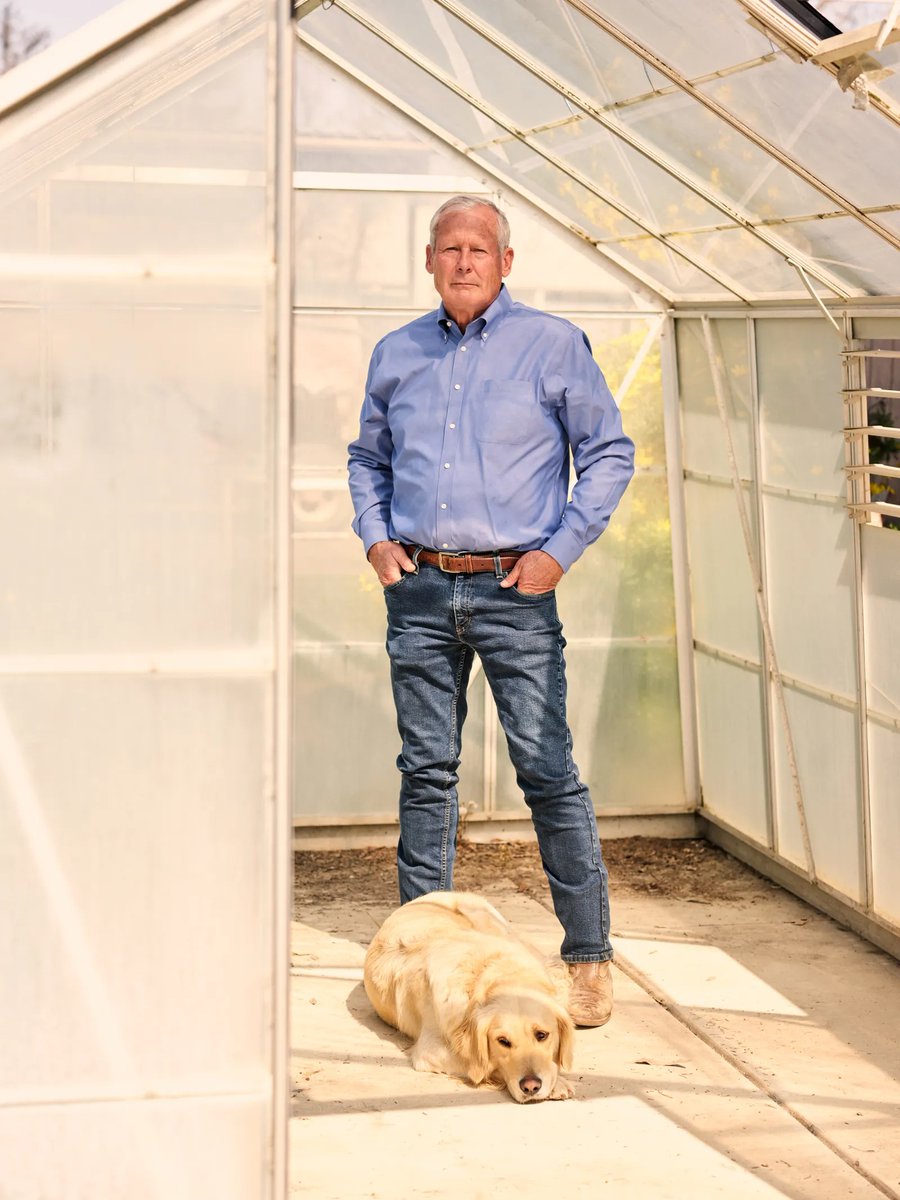Don Cameron sloshed through the land. More of his crops were underwater than at any time since he began farming in California’s San Joaquin Valley.
But while others dropped sandbags to hold back the flood he took a different approach. wired.trib.al/ecntp7Q 1/12
But while others dropped sandbags to hold back the flood he took a different approach. wired.trib.al/ecntp7Q 1/12
It was early 2017, and after five years of drought, the valley was in the midst of its second-wettest year on record. Cameron measured the depth of the drink and inspected the new growth on his vines and trees. Then he ordered more water to come.
📸: Nicholas Albrecht 2/12
📸: Nicholas Albrecht 2/12

Farmers in Cameron’s area do not hold rights to any nearby river, or to the supplies piped in through government projects; they either buy from people who do or, more often, pump what they need out of the aquifers. 3/12
Cameron didn’t come up with the idea of using floodwater to refill aquifers, but he was the first farmer in the valley to experiment on his own harvest.
📸: Nicholas Albrecht 4/12
📸: Nicholas Albrecht 4/12

Cameron hoped that on-farm recharge might help to save the country’s most productive agricultural region from dying of thirst. Ever since the first crops were planted, people have used more water than nature could replace. 5/12
Cameron’s project held the promise of a new path: What if you could capture one disaster and use it to mitigate the other? What if you could do what California’s climate couldn’t and average out the floods and droughts?
📸: Nicholas Albrecht 6/12
📸: Nicholas Albrecht 6/12

The depleted aquifers beneath the Central Valley could hold three times more water than all the state’s reservoirs combined—and water stored underground isn’t lost to evaporation like the stuff on the surface is. 7/12
The stakes are high: California grows more than a third of the vegetables and two-thirds of the fruits and nuts eaten in the United States. The Central Valley feeds not only the state’s economy but people around the globe. 📸: Nicholas Albrecht 8/12 

But meanwhile, a battle has been brewing. A land developer and an outside water district say the Kings River surge should belong to them.
📸: Nicholas Albrecht 9/12
📸: Nicholas Albrecht 9/12

Their claim incensed the river’s existing rights holders. Stuck in the middle, Cameron’s paradigm-shifting recharge project was at risk of running dry—a potential casualty of the state’s water wars.
When drought is coming for everyone, who owns the flood? 10/12
When drought is coming for everyone, who owns the flood? 10/12
Read the full feature in WIRED to find out who survives this new water war: wired.trib.al/ecntp7Q
📸: Nicholas Albrecht 11/12
📸: Nicholas Albrecht 11/12

Subscribe to WIRED and get your first year of print and digital access for just $10 wired.trib.al/9E2tJFL 12/12
• • •
Missing some Tweet in this thread? You can try to
force a refresh




